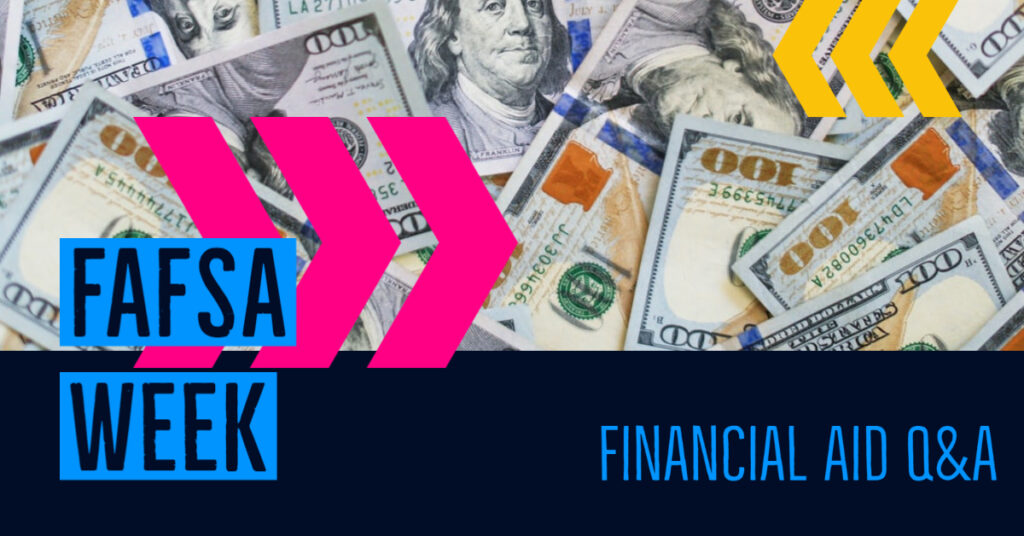
Financial aid can be a confusing part of the college application process. Even if you can afford to pay for college, it’s a good idea to learn what aid is available and apply for it. You aren’t obligated to accept it, but most students qualify for some form of aid and, if it’s available, why not use it?
What is financial aid?
Financial aid is intended to make up the difference between what your family can afford to pay and what college actually costs. With college tuition rising rapidly, more than half of the students currently enrolled in college receive some sort of financial aid to help pay for college. The system is based on the premise that anyone should be able to attend college, regardless of financial circumstances. However, students and their families are expected to contribute to the extent that they are able.
There are two types of aid: need-based, and non need-based. Need-based aid includes grants and scholarships that are issued based on the family’s ability to contribute to education costs. Non-need-based aid is allocated solely based on availability, not need.
There are three main types of financial aid: grants and scholarships, loans and work study.
What is “free” money?
Not all aid is equal and the best aid is the aid you don’t have to pay back. It’s like getting a huge coupon of savings to use for your college education.
What types of education loans are available?
Not all college loans are equal.
There are two types of government-based loans: subsidized and unsubsidized. Subsidized loans have lower interest rates and are awarded based on the student’s financial need with interest deferred until after graduation. Unsubsidized loans are awarded without regard to financial need with interest payments beginning immediately and regular payments due after graduation.
What is work study?
The Federal Work-Study Program provides a method for college students to earn funds to be used toward their education. The program is based on financial need and students must be accepted into the program to qualify which is determined by completing the Free Application for Federal Student Aid or FAFSA.
What is the FAFSA and do I need to file it?
The FAFSA is the Free Application for Federal Student Aid and you should apply if you want any chance to receive federal and state student grants, work study, loans or merit-based aid. If you don’t complete the FAFSA, you can’t apply for student loans. Colleges also use these figures when determining financial aid eligibility for grants and scholarships. Plus, many states use your FAFSA data to determine your eligibility for their aid.
The FAFSA is available on Oct. 1 of every year and you should complete it as close to that date as possible in the fall of your senior year. Aid is dispersed on a first-come, first-served basis. The sooner you apply, the more likely you will receive a portion of the financial aid pie.
What is the EFC?
The Expected Family Contribution (EFC) is how much money your family is expected to contribute to your college education for one year. Typically, the lower your EFC, the more financial aid you will receive. Factors such as family size, number of family members in college, family savings, and current earnings (information you provide on the FAFSA) are used to calculate this figure. Once your FAFSA is processed, you will receive a Student Aid Report (SAR) with your official EFC figure.
You can calculate your EFC by visiting FinAid.org.
What is an award letter and how do you use it?
As the offers of admission arrive from colleges, the financial aid award letters will follow. They can be confusing and vague. Added to the confusion is that every award letter is different, making it hard to easily compare them side by side.
Thankfully, there are tools available and information to help you look at these letters for what they are: the college’s pitch for you to accept their offer of admission. You are in control of this process and you hold the cards. It’s your decision to accept or reject their offer based on the amount of aid they are willing to give you. Money, in this situation, is everything.
If a college wants you to attend, they will back it up with money. No money means their offer is probably based on filling a quota and expecting you will decline to attend. And you should. Who wants to attend a college that doesn’t value you as a student?

2 thoughts on “FAFSA Week: Financial Aid Q &A”
Comments are closed.